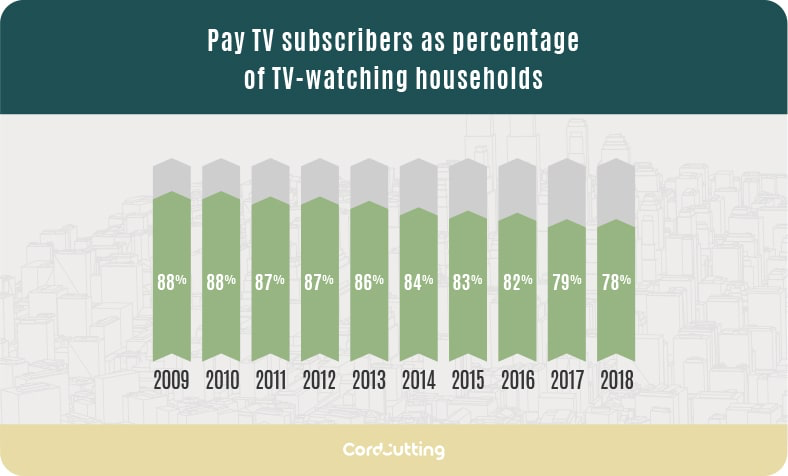A new study reveals 2019 may be a tipping point when it comes to cord cutting and offers in-depth analysis in cities across the country.
Cord cutting is on the rise because cable prices are rising; high-speed home broadband is nearly universal; streaming services such as Netflix, Prime and Hulu are gaining market share; and over-the-top [OTT] services like HBO Now and CNNGo make it possible to watch without a cable subscription (as will the Apple TV+ service coming this fall).

CordCutting.com has released a study on The State of Cord Cutting: Cities to Watch in 2019 using the most recent data from the U.S. Census Bureau, TiVo’s Annual Survey and Leichtman Research Group. Here were some key national findings from the study:
In 2019, 88% percent of Americans subscribed to pay TV and today that number is down to 78%. Still a majority but cable companies do not like the trajectory of the trend.
TiVo’s annual survey revealed high cable prices and the attractiveness of streaming services are the two biggest reasons for the decline.
Ten percent of households were subscribed to a streaming service in 2009 and by 2017 that number jumped to 55% (a 450% increase).
Sixty-one percent of people ages 18-29 use streaming to consume most of their TV.
The top 10 cities expected to see increases in cord cutting in 2019 include: Raleigh, NC; Denver, CO; Portland, OR; D.C./Arlington; Anchorage, AK; San Francisco; Seattle, WA; Colorado Spring, CO; and San Diego, CA.
